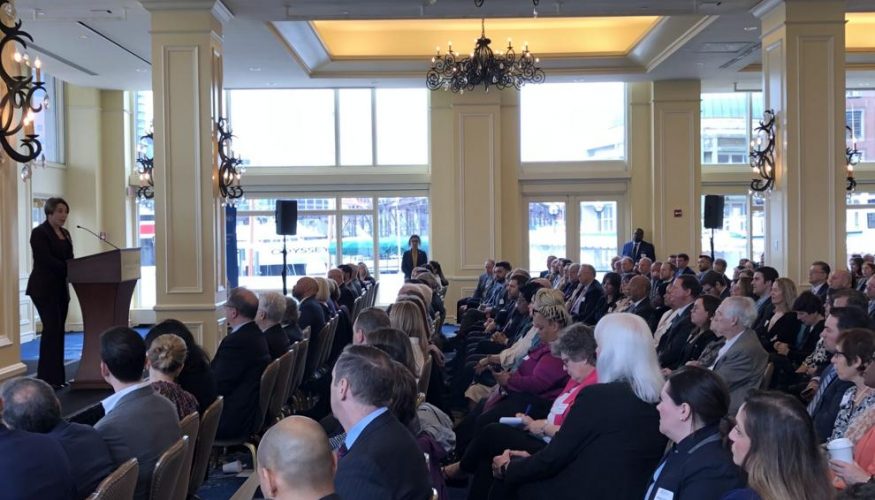Healey Expects $16 Bil Return On Climate Tech Investment

By Colin A. Young, State House News Service
BOSTON, APRIL 30, 2024…..Gov. Maura Healey touted Tuesday that her economic development proposal “goes big” on the burgeoning climate tech field with a $1 billion state investment, and said a study to be published later this week will show that it could result in a similarly significant economic return.
Healey has long discussed making Massachusetts a global leader in the climate tech industry, which seeks to harness innovation to develop solutions for pressing climate-related challenges. The governor’s economic development bill pending in the Legislature (H 4459) would give that sector a major boost, with a 10-year, $1.3 billion investment of public dollars and tax incentives to “develop a leading global climatetech ecosystem that can drive innovations to fight climate change.”
Healey’s $1 billion climate tech proposal includes $700 million for the Mass. Clean Energy Center, broken down into $400 million in capital funding and $300 million in operating money. The capital dollars would be split evenly across authorizations for a clean energy investment fund and an offshore wind industry investment fund. And the operating support could cover workforce development, strategic partnerships and internships, the administration said.
The clean tech plan also incorporates $300 million in tax incentives, including a $35 million annual offshore wind tax credit and a new climate tech tax incentive program worth up to $30 million annually.
The governor’s economic development proposal, a bill that often gets finished by the Legislature very near to the July 31 deadline for formal business, would also reauthorize the state’s life sciences initiative at $1 billion for the next decade. And with the Vertex Pharmaceuticals headquarters looming behind her in the Seaport, Healey said Tuesday that climate tech has the chance to be the new life sciences, an industry that keeps Massachusetts at the cutting edge.
“We’ve done it in life sciences, we’ve seen where that’s taken us. We have all the same ingredients to do it again with climate tech, but every state is competing hard,” she said. “And the time is now to secure our lead and catalyze a new level of growth.”
“The key is: who’s going to unlock the potential of applying that, applying AI, to cure diseases, to solve major challenges, to identify how and where we’re going to build the resilience for climate mitigation and decarbonization? They’re real challenges and AI is going to help us unlock solutions, and I want Massachusetts — because we should — to lead on this,” the governor said. “That’s why I proposed $100 million to make Massachusetts the applied AI hub for the country. We can create a unique lane for our state in developing technologies that will bring AI to every industry.”
The governor said a task force she assembled to think about the promise and pitfalls of AI has been busy at work, convening more than 200 people from labor, higher education, government, and at least nine different industries.
“Real, actionable recommendations are what I’ve asked for and they’ve already started to emerge just a couple of months in,” she said, without offering greater detail.
“However, AI systems have already been shown to pose serious risks to consumers, including bias, lack of transparency or explainability, implications for data privacy, and more. Despite these risks, businesses and consumers are rapidly adopting and using AI systems which now impact virtually all aspects of life,” Campbell’s office said.